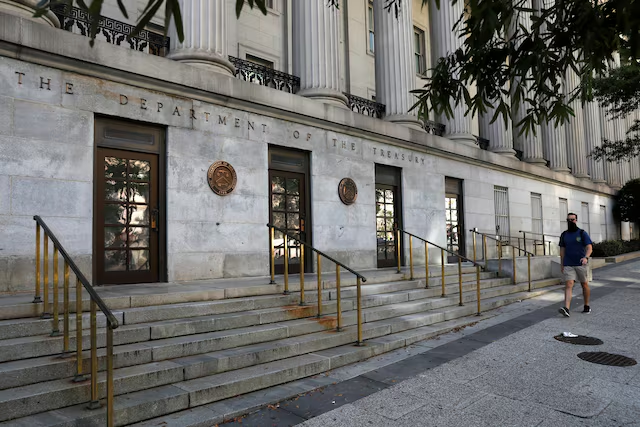U.S. bond market participants are worried market liquidity will keep deteriorating as the U.S. Treasury continues to issue large amounts of debt to back deficit spending while dealers struggle to keep up with the ballooning size of the market.
Liquidity – or the ability to trade an asset without significantly moving its price – has worsened over the past few years. U.S. government bond prices have fluctuated sharply since the Federal Reserve started hiking interest rates to tame inflation and the issue was discussed during several panels at the Fixed Income Leaders Summit event in Boston on June 13-14.
Regulators and the Treasury itself have launched a slate of reforms to improve trading conditions and avoid disruptions in the world’s biggest bond market, the bedrock of the global financial system. Still, many are concerned that vulnerabilities that emerged in previous incidents, such as in March 2020 when liquidity rapidly deteriorated amid pandemic fears, could still reappear in case of spikes in volatility and as demand struggles to keep up with supply.
“I do worry about market liquidity,” Chris Concannon, chief executive of MarketAxess, a fixed income electronic trading platform, said at the conference. “Right now we issue Treasury debt to pay interest on Treasury debt … and if you look at the players supporting liquidity, they’re not increasing,” he said.
The Treasury market has more than doubled over the past 10 years, from $12.5 trillion in 2014 to $27 trillion at the end of May, according to Securities Industry and Financial Markets Association data. Going forward, federal debt could grow to $48 trillion by 2034, according to the Congressional Budget Office.
On the other hand, dealers’ intermediation capacity is constrained because of higher capital requirements that discourage banks from holding large positions.
Additionally, the yield curve remains deeply inverted – meaning short-term debt yields more than longer-dated bonds. This is a further disincentive for banks to be exposed to so-called duration, or the interest rate sensitivity of their positions.
“There’s no carry so why would you own this stuff? It uses up your balance sheet, you make no money,” said Harry Melandri, an advisor at MI2 Partners, a macroeconomic research firm.
“If we have a market where there is a lot of selling, for whatever reason … market makers will not be hugely pleased to pick up volumes,” he said. “I’m not saying it’s a problem today or tomorrow, but the vulnerability is there.”
After improving at the end of last year as Treasuries rallied on expectations of interest rate cuts, liquidity has worsened over the past few months, according to an analysis by Steven Abrahams, head of investment strategy at Santander US Capital Markets. He calculates liquidity by measuring deviations between certain Treasury yields: in illiquid markets, deviations tend to persist while in liquid markets they go away quickly.
New York Fed researchers said in a paper last year that yield volatility explains most of the variation in Treasury market liquidity. But they also noted “a significant loss in U.S. Treasury market functionality when intensive use of dealer balance sheets is needed to intermediate bond markets, as in March 2020.”
For James Fishback, co-founder and chief investment officer of Azoria Partners, a multi-asset investment firm, “liquidity is fine” these days, but he’s worried it may worsen dramatically because of increases in government debt issuance.
“What happens if you have a Treasury auction and nobody shows up? That’s a real concern. And that’s where liquidity really matters,” he said.



